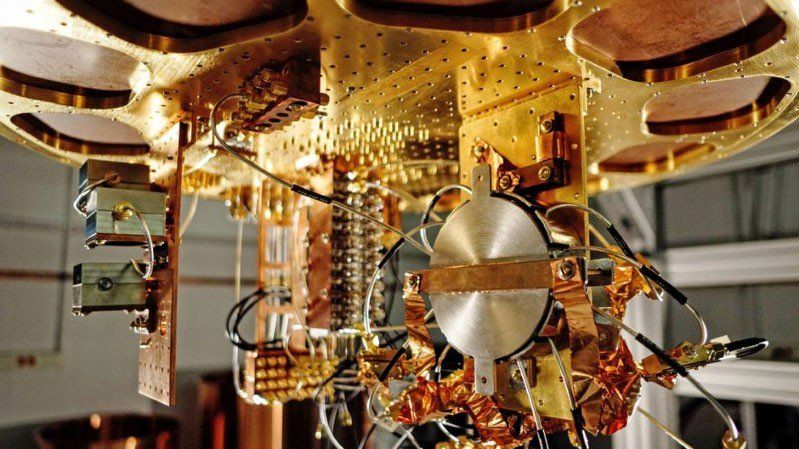The news: According to a report in the Financial Times, a team of researchers from Google led by John Martinis have demonstrated quantum supremacy for the first time. This is the point at which a quantum computer is shown to be capable of performing a task that’s beyond the reach of even the most powerful conventional supercomputer. The claim appeared in a paper that was posted on a NASA website, but the publication was then taken down. Google did not respond to a request for comment from MIT Technology Review.
Why NASA? Google struck an agreement last year to use supercomputers available to NASA as benchmarks for its supremacy experiments. According to the Financial Times report, the paper said that Google’s quantum processor was able to perform a calculation in three minutes and 20 seconds that would take today’s most advanced supercomputer, known as Summit, around 10,000 years. In the paper, the researchers said that, to their knowledge, the experiment “marks the first computation that can only be performed on a quantum processor.”
Quantum speed up: Quantum machines are so powerful because they harness quantum bits, or qubits. Unlike classical bits, which are either a 1 or a 0, qubits can be in a kind of combination of both at the same time. Thanks to other quantum phenomena, which are described in our explainer here, quantum computers can crunch large amounts of data in parallel that conventional machines have to work through sequentially. Scientists have been working for years to demonstrate that the machines can definitively outperform conventional ones.
